Enhancing protection against vector-borne diseases in forcibly displaced communities: evaluating the efficacy of spatial repellents for cutaneous leishmaniasis control in North-East Syria
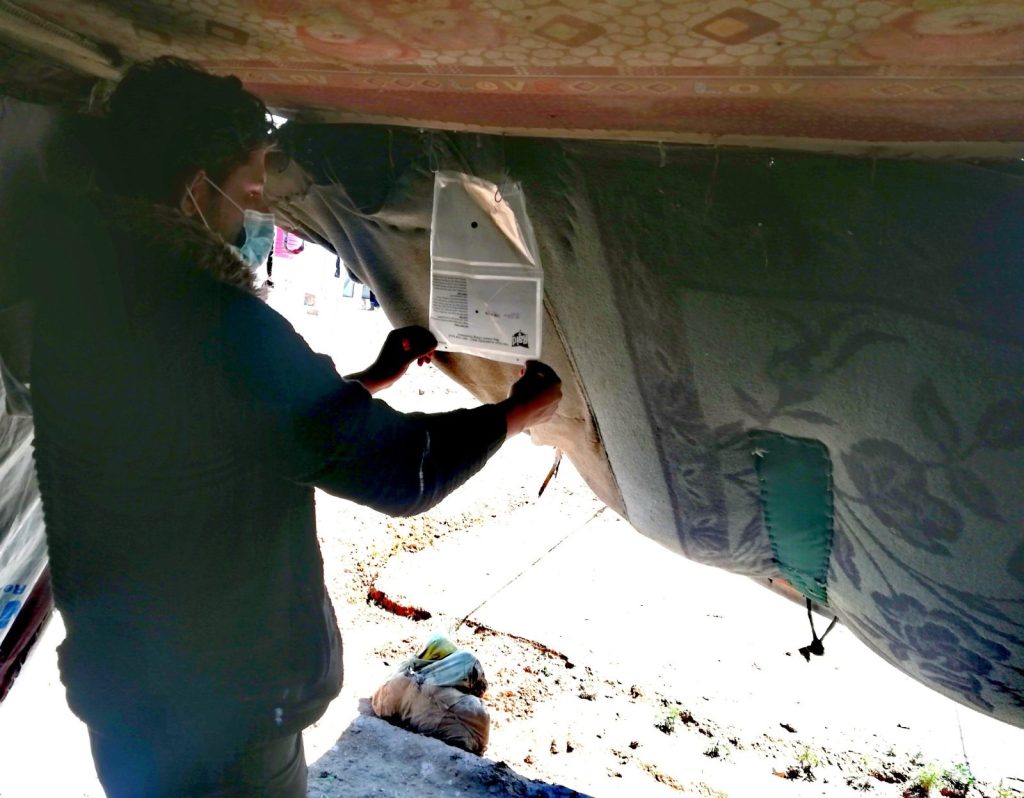
In Syria, during the 14 years after the outbreak of civil war, 16.7 million people have been forced to flee their homes, of which 7.2 million remain internally displaced in 2025. Breakdown in waste management caused by aerial bombardment has created ideal conditions for cutaneous leishmaniasis (CL) transmission, vectored by phlebotomine sandflies. Displaced populations reside in […]
Country Brief: South Sudan
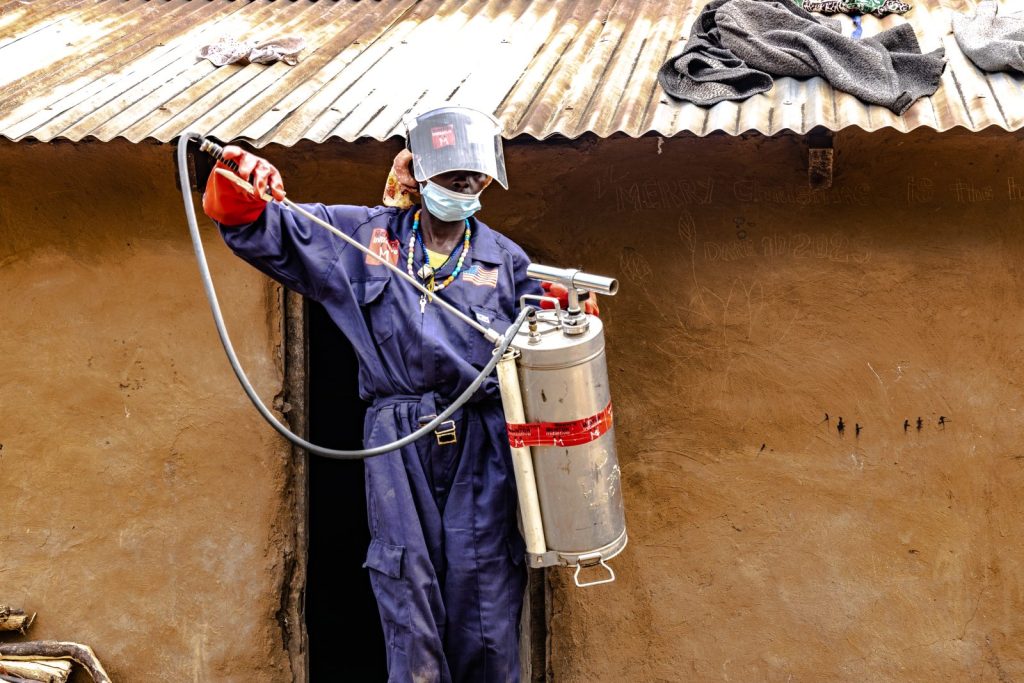
South Sudan faces a severe humanitarian crisis caused by conflict, climate shocks, economic instability, and public health challenges. Floods, droughts, and extreme heat have devastated livelihoods and displaced communities. Intercommunal violence and the influx of over 900,000 people fleeing Sudan have overwhelmed infrastructure and services. Health systems are fragile, with limited access to care and […]
Country Brief: Central African Republic
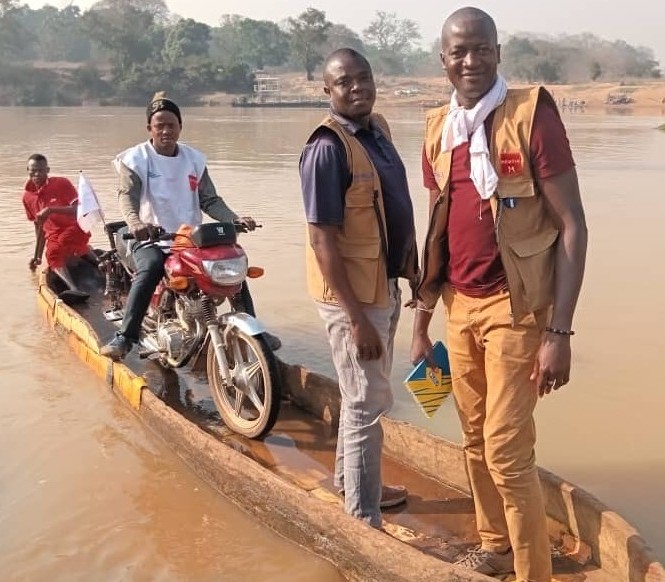
The decade-long conflict in the Central African Republic (CAR) has created acute humanitarian needs, with the OCHA humanitarian Needs Overview (HNO) 20241 estimating that 2.8 million people – nearly half of the population – require assistance. Clashes between government forces, government allies and armed groups are causing the humanitarian situation to continue to deteriorate and […]
Project Brief: Expansion and sustained control of schistosomiasis and soil-transmitted helminths in Angola
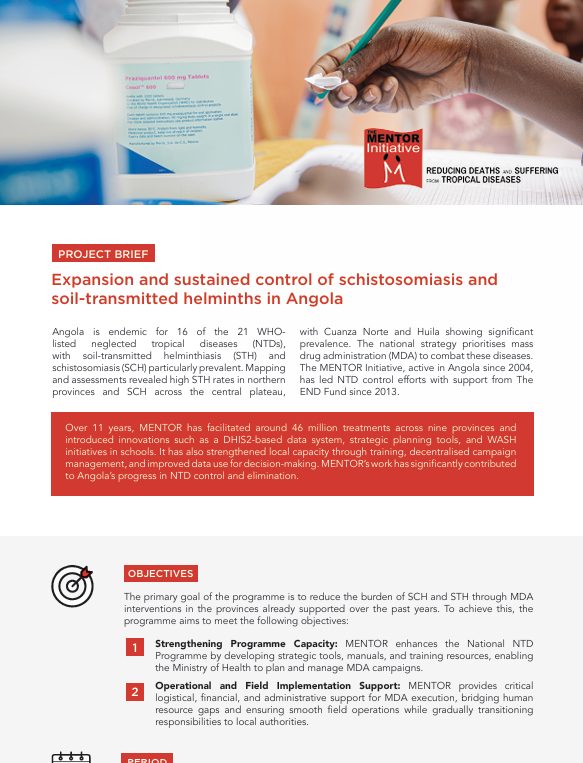
Angola is endemic for 16 of the 21 WHO listed neglected tropical diseases (NTDs), with soil-transmitted helminthiasis (STH) and schistosomiasis (SCH) particularly prevalent. Mapping and assessments revealed high STH rates in northern provinces and SCH across the central plateau, with Cuanza Norte and Huila showing significant prevalence. The national strategy prioritises mass drug administration (MDA) […]
Capacity Statement
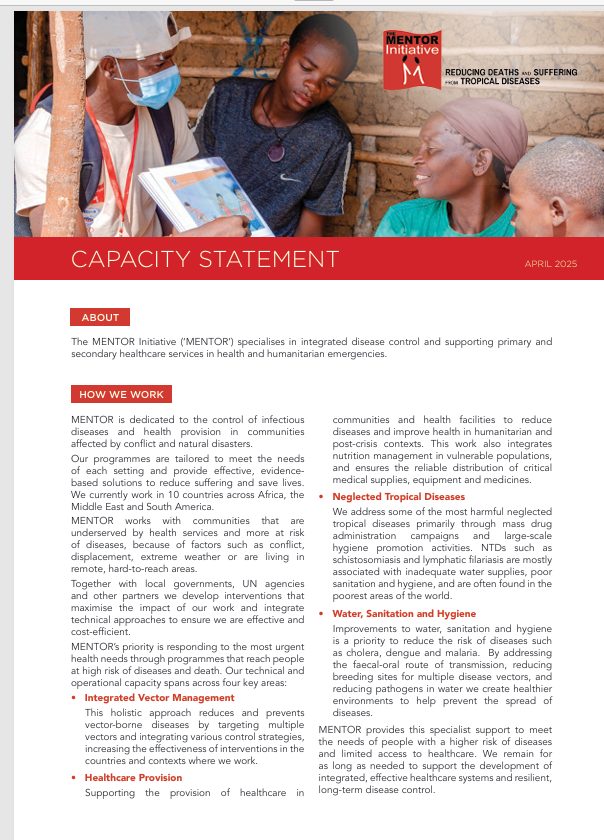
The MENTOR Initiative capacity statement, updated in April 2025.
Project brief: Enhancing disease control in northwest Syria through strengthening local health systems and improving environmental sanitation
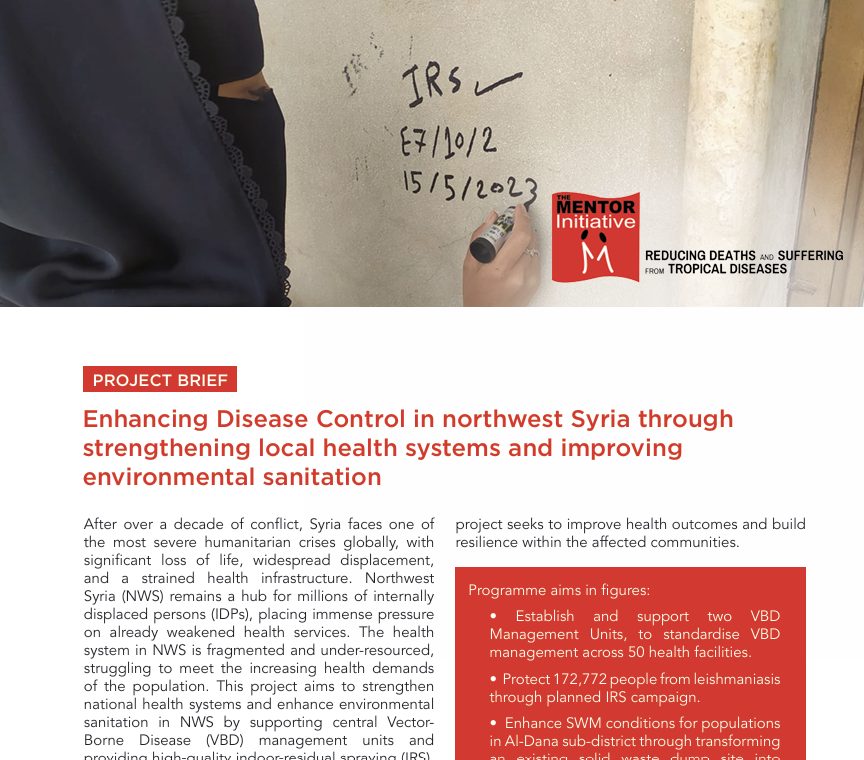
After over a decade of conflict, Syria faces one of the most severe humanitarian crises globally, with significant loss of life, widespread displacement, and a strained health infrastructure. Northwest Syria (NWS) remains a hub for millions of internally displaced persons (IDPs), placing immense pressure on already weakened health services. The health system in NWS is […]
Asian tiger mosquito in the oil-producing city of Soyo: the first report of Aedes albopictus in Angola
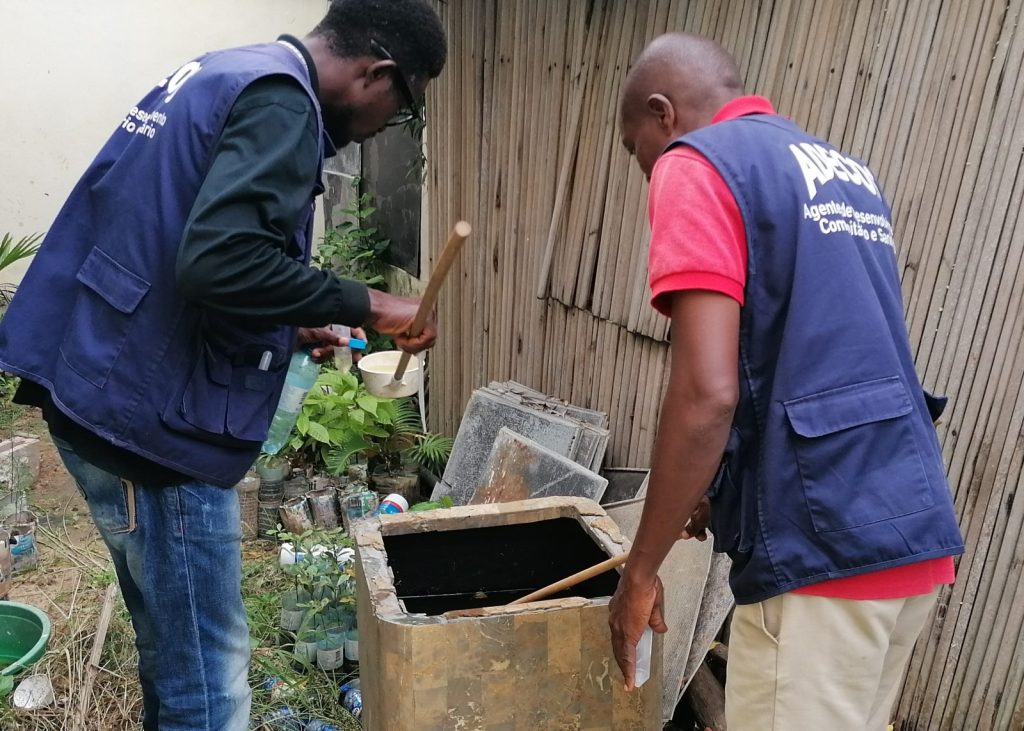
The Asian tiger mosquito, Aedes albopictus (Skuse, 1894), is a highly invasive species that has successfully colonized many tropical and temperate regions worldwide. Its rapid global spread is strongly associated with human activities and has created favorable conditions for the emergence of human arboviruses in new geographic areas. The paper reports the first detection of Aedes albopictus in Angola […]
Project brief – Advancing access to healthcare in the Central African Republic: a holistic district-level initiative to expand integrated HIV/TB and malaria services, prioritising key populations and underserved areas.
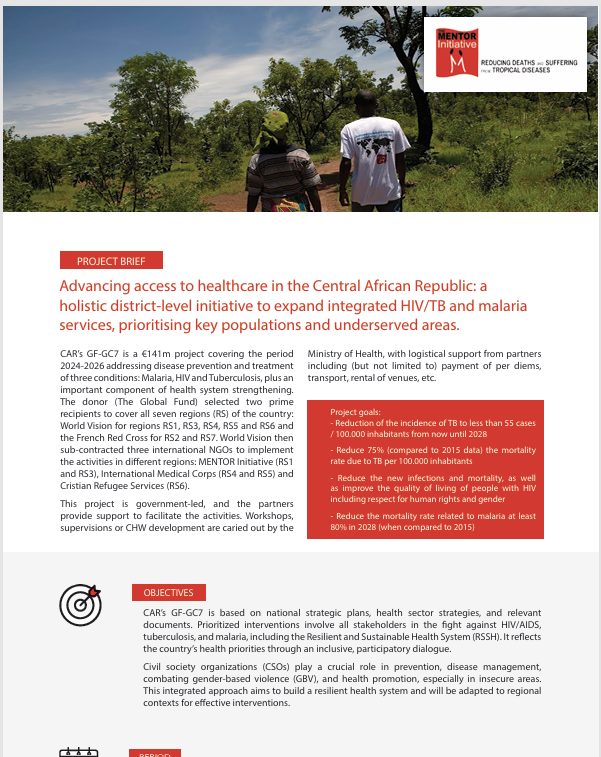
CAR’s GF-GC7 is a 141M EUR project covering the period 2024-2026 targeting disease prevention and treatment of three conditions: Malaria, HIV and Tuberculosis, plus an important component of Health System Strengthening. The donor (The Global Fund) selected two prime recipients to cover all seven regions (RS) of the country: World Vision for regions RS1, RS3, […]
Project brief – Gaza Lifeline: Integrated food, WASH and protection project
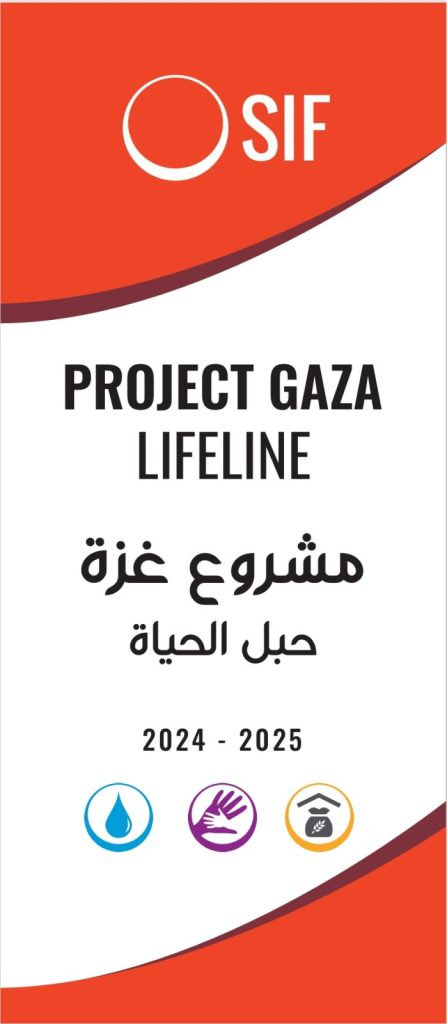
The Gaza Strip faces a severe humanitarian crisis due to ongoing conflict, which escalated significantly in October 2023. The region’s health infrastructure is devastated, with 58% of hospitals non-functional and 78% of primary care clinics closed. This has led to outbreaks of diseases such as hepatitis A, respiratory infections, and skin conditions. Essential infrastructure has […]
Project Brief: Integrated project to improve nutrition and provide an emergency Water, Sanitation and Hygiene (WASH) response for the population of Batangafo, Central African Republic
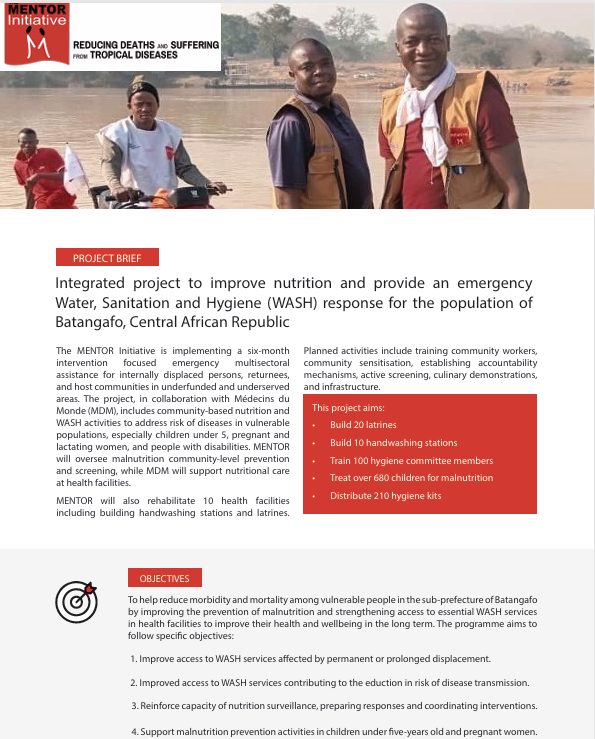
The MENTOR Initiative is implementing a six-month intervention focused emergency multisectoral assistance for internally displaced persons, returnees, and host communities in underfunded and underserved areas. The project, in collaboration with Médecins du Monde (MDM), includes community-based nutrition and WASH activities to address risk of diseases in vulnerable populations, especially children under 5, pregnant and lactating […]
